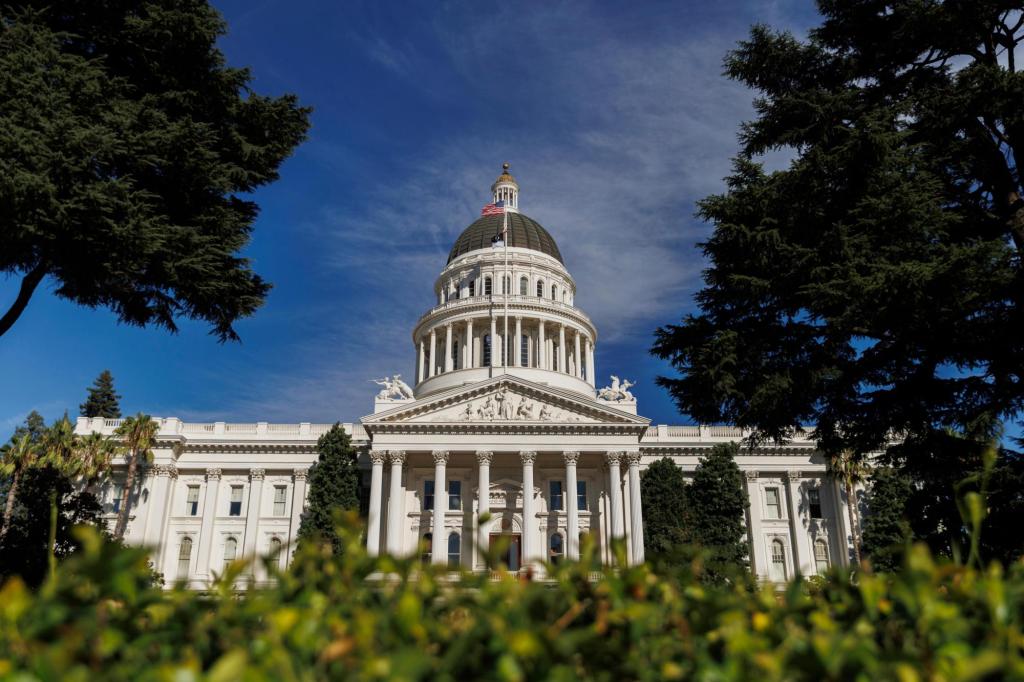
A few weeks ago, a video popped up on YouTube, purporting to be a verbal clash between Sen. Josh Hawley, a Missouri Republican, and Gov. Gavin Newsom during a congressional hearing.
The video claimed that Hawley cleaned Newsom’s clock in their debate over a lawsuit that Newsom had filed. The problem is it was fake, created with video snippets of both politicians and a voiceover describing what supposedly happened.
The video, which has since vanished from YouTube, is a fairly crude example of how technology can be manipulated to depict seemingly real events.
More sophisticated examples of artificial intelligence, known as deepfakes, can literally put words in political figures’ mouths or even create seemingly real persons.
Last year, Christopher Kohls, going by the name “Mr. Reagan” on social media, posted a video in which Kamala Harris seemingly acknowledged that she had been the “ultimate diversity hire” when Joe Biden chose her as his vice presidential running mate.
Kohls said it was a parody, but Elon Musk posted it on his social media platform X, drawing criticism from Newsom and a vow to outlaw such material. It was one of many clashes with Musk, the billionaire electric car and rocket tycoon, after he became a Donald Trump ally.
Within weeks, Newsom signed two bills aimed at either regulating or banning AI-generated political videos. Kohl, later joined by other content creators, sued, contending that they violate free speech.
This week John Mendez, a federal judge in Sacramento, struck down one of the measures, Assembly Bill 2655, carried by Assemblyman Marc Berman, a Palo Alto Democrat. He ruled that the federal Communications Decency Act protects X and other sites from liability for material posted by third parties, such as Kohl or Musk.
AB 2655 would have barred internet sites from posting deceptive political material during campaign seasons. “They don’t have anything to do with these videos that the state is objecting to,” Mendez said.
Notably, Mendez indicated that he will also reject the second measure, Assembly Bill 2839, carried by Assemblywoman Gail Pellerin, a Santa Cruz Democrat. It would prohibit anyone from “knowingly distributing an advertisement or other election communication … that contains certain materially deceptive content.”
“I think the statute just fails miserably in accomplishing what it would like to do,” Mendez said, adding “It’s become a censorship law and there is no way that is going to survive.”
As the country’s political polarization deepens, voters become more willing to believe allegations that those on the other side of the divide are evil, corrupt and power hungry. Meanwhile, artificial intelligence makes political deepfakes ever more sophisticated and capable of fooling gullible voters into believing their lies.
Exaggeration, selective facts and downright lies have always been evident in political campaigns, but historically held in check, at least partially, by newspapers and other political media.
Unfortunately, however, the mainstream media have fallen on economic hard times and have become less capable of policing political discourse. Meanwhile, X, YouTube, podcasts and other digital media have exploded as alternative sources but they tend to drive polarization rather than counteract it.
The bills that Democratic legislators and a Democratic governor enacted last year were clearly aimed at crippling media on the other side of the ideological divide but, as Judge Mendez ruled, violate free speech.
Censorship cannot be the answer. The approach that Newsom and legislators took is a slippery slope that would invite retaliation from their political rivals, thus deepening the already yawning political divide.
It is, however, a genuine quandary. Unfettered use of AI-driven deepfakes in political campaigns present an obvious peril, but so does any effort to prohibit free speech, no matter how distasteful.
Dan Walters is a CalMatters columnist.
Originally Published:



